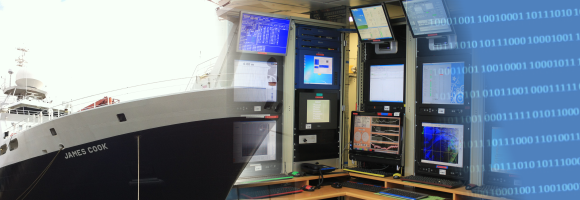Marine Data Science Special Interest Group

The management of marine science data underpins the credibility and reproducibility of marine science research, ensuring that unique environmental data are readily available for long-term re-use for a range of applications.
In order to improve the end-to-end approach to data management, this group will bring together interested parties to discuss issues such as the interoperability of data, use of standards and the visualisation of data, along with the organisational infrastructure that underpins high-quality data management practices.
Sharing best practice amongst and between research institutions, commercial marine science and data centres will have mutual benefits for data managers, technicians, scientific developers, organisational support staff, researchers and commercial science alike. Such benefits include:
- aligning institutional and community data management processes and those of data centres to improve efficiency and ensure data security;
- increasing access to specialist knowledge and experience across institutions;
- maximising the value of existing data through data discovery and citation;
- maximising the value of emerging near-real time data streams;
- and improving the accessibility of software tools for the community;
The launch meeting of the Challenger Society Marine Science Data Management Special Interest Group will be on Friday 9th September following the main Challenger Conference 2016.
Group Contact: Matt Donelly challenger@marinedatascience.net
Latest News
Royal Society Publishing Photography Competition 2025
Please see a message from the Royal Society below:
We are delighted to announce that the 2025 Competition is now open for entries until 15 August for a chance to win £1000! The competition celebrates the power of photography in conveying the wonder of science happening all around us and photographs can be submitted in the categories of: Astronomy, Behaviour, Earth Science and Climatology, Ecology and Environmental Science, and Microimaging.
The competition is free to enter and open to anyone studying or working in science at graduate level or above. Category winners will receive a one-year membership to the Royal Photographic Society and the overall winner will receive a grand prize of £1,000. Find out more: https://bit.ly/RSPphotocomp
October 2025 MEDIN Workshop: Marine Data Management, Governance and the MEDIN toolset
The Marine Environmental Data and Information Network (MEDIN) are pleased to announce that registration is now open for the next occurrence of our popular free online training workshop: ‘Marine Data Management, Governance and the MEDIN toolset’ on the 13th – 17th October 2025 on OceanTeacher Global Academy.
Marine Data Management, Governance and the MEDIN toolset
The Marine Environmental Data and Information Network (MEDIN) and OceanWise are delighted to invite you to attend our popular free online training workshop: ‘Marine Data Management, Governance and the MEDIN toolset’ on the 19th – 23rd of May 2025.
